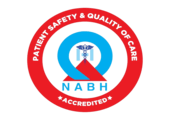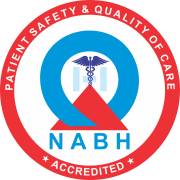With age and as a peril of our unhealthy lifestyle, we may face several consequences – one of them is Retinal Vein Occlusion. Let us see in-depth what this dangerous eye problem is and how we can prevent/treat it.
What is Retinal Vein Occlusion (RVO)?
The retina is the inner layer of the eye that converts light images to nerve signals and sends them to the brain. Retinal Vein Occlusion is similar to a stroke in the eye. It occurs due to a blockage in the small veins that carry blood away from the retina .
Statistics show that Retinal Vein Occlusion is common in people in the middle age group and the elderly. Retinal vein occlusion represents the second leading cause of retinal vascular blindness after diabetic retinopathy.
Watch about Retinal Vein Occlusion on Shekar Eye Hospital YouTube Channel.
Diagnosis is made by having a detailed eye exam where your eye doctor shall perform the following tests:
- Visual acuity
- Testing of side vision (visual field examination)
- Slit lamp examination
- Pupil reflex response
- Intraocular pressure
- Dilated eye exam
- Fluorescein angiography
- Retinal photography and tomography
Additionally, the doctor may check blood cholesterol and triglyceride levels, and test for diabetes. For patients under the age of 40 (papillophlebitis), an examination of blood clotting and thickening may also be done.
What are the causes of Retinal Vein Occlusion?
Usually, RVO occurs due to blockage of veins. The causes are:
- Atherosclerosis(It is one of the major causes )- As you age, the blood vessels get less elastic and turn narrow and stiff, due to cholesterol deposits, leading to a decrease in blood supply as well as compression of the adjacent vein
- Heart Disease
- Hypertension
- Blood Clotting disorders
- Uncontrolled Diabetes
- Smoking
- High Cholesterol
- Glaucoma
- Inflammatory conditions

Symptoms of Retinal Vein Occlusion
The symptoms include the following:
The symptoms include the following:
- Blurry vision is the most common symptom . It could be of sudden onset.
- Loss of vision when a major vessel is occluded.
- Vision Distortion
- Missing area of vision or scotomas
Visit your eye doctor as soon as you witness any of these symptoms. RVO is irreversible, and you want to be proactive and prevent as much damage as possible.
What are the three types of RVO?
The three types of RVO are Central Retinal Vein Occlusion, Branch Retinal Vein Occlusion, and Hemi Retinal Vein Occlusion. They depend on the location of the occlusion.
- Central Retinal Vein Occlusion is the occlusion of the main retinal vein.
- Branch Retinal Vein Occlusion is the occlusion of one of the four branches of retinal veins.
- Hemi Retinal Vein Occlusion is the occlusion of the inferior or superior branch of the central retinal vein.
Treatment
Retinal Vein Occlusion is incurable. However, you can treat it to some extent. It may take about a year to know about the efficiency of the treatment. Mostly, the main focus of the treatment would be on protecting your existing vision.
Discuss in detail with your Retina Specialist, who will help you determine the best treatment option for your condition.
The greatest predictor of developing RVO in an eye is a RVO in the contralateral eye. To prevent another incident and protect the other eye, it is crucial to address the root cause . In addition to following medical instructions for controlling the underlying condition (hardening of the arteries), the doctor may offer these treatments to reduce the swelling and fluid leaks in the retina, which occur as complications, improving the odds of a better recovery.
Intravitreal Eye Injections – These can improve as well as slow vision loss. It is the most efficient treatment at present to protect the vision damaged due to RVO. It is a day care procedure where the Retina Specialist shall clean your eyes and, after preparing your eyes for the injection, a small needle shall administer the medicine in the affected location. It takes less than half an hour to complete this procedure. Some patients may be able to notice a significant improvement in their vision after the injection.

Laser Surgery – You may need this treatment if your eyes start developing new blood vessels. These may reduce the number of injections needed subsequently. Laser is a short procedure and takes around half an hour to complete. You may need someone to accompany you to drop you home. Continue your daily activities within a day of the procedure.
Prevention
Prevention of RVO is the best as this incurable condition can cause permanent vision loss. You cannot unblock retinal veins, so prevention is better than any other option.
Best practices for prevention

Maintain a healthy lifestyle. Exercising regularly, eating a healthy, balanced diet, and quitting smoking and alcohol consumption can help prevent RVO. Keeping a check on the diabetic, hypertensive status and lipid profile also is prudent.
Get eye check ups regularly, especially after a certain age. Such preventive eye measures can help you detect this condition earlier, much before the actual damage that would take place. Get a proper eye check-up done by an ophthalmologist every 1-2 years if you suffer from cholesterol, diabetes, hypertension.
To conclude-
Retinal Vein Occlusion is a common eye problem. It can cause permanent vision loss and other eye complexities too.
Do not ignore the warning signs. Consult with your ophthalmologist and get this treated at the earliest. After receiving treatment, follow up with your eye doctor frequently to maintain your vision.
Dr Vivek, Senior Retina Eye Consultant, and his brilliant team at Shekar Eye Hospital will treat and manage your eyes well and ensure that your eyes get the best possible treatment.
Book an appointment now.








